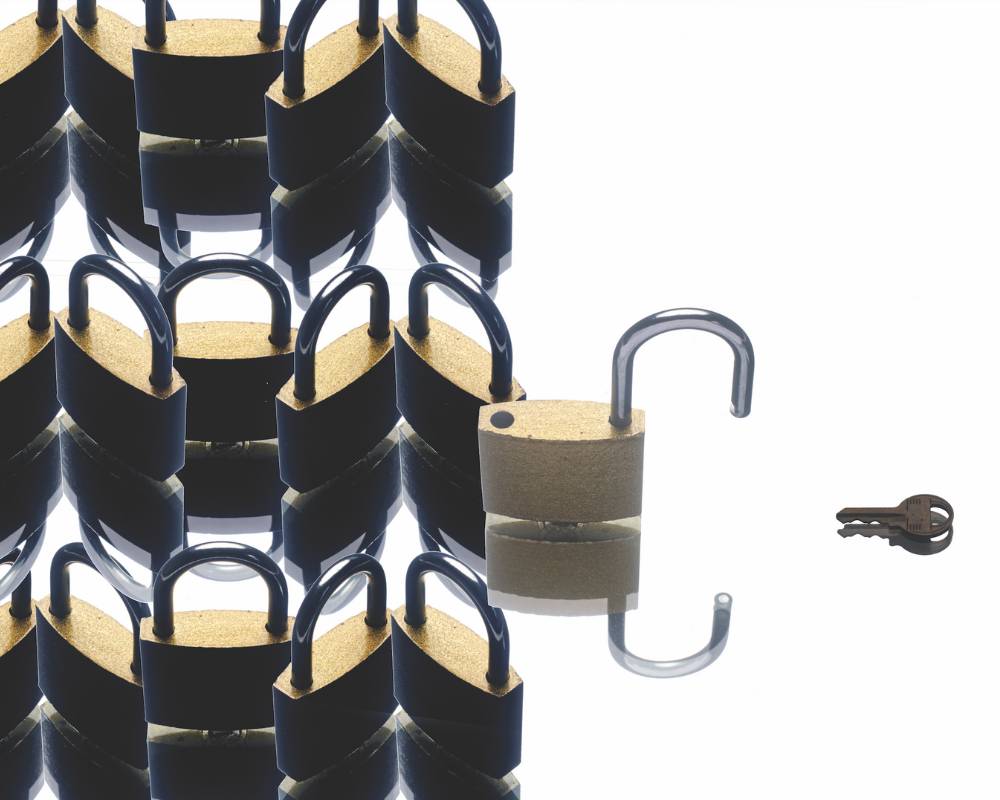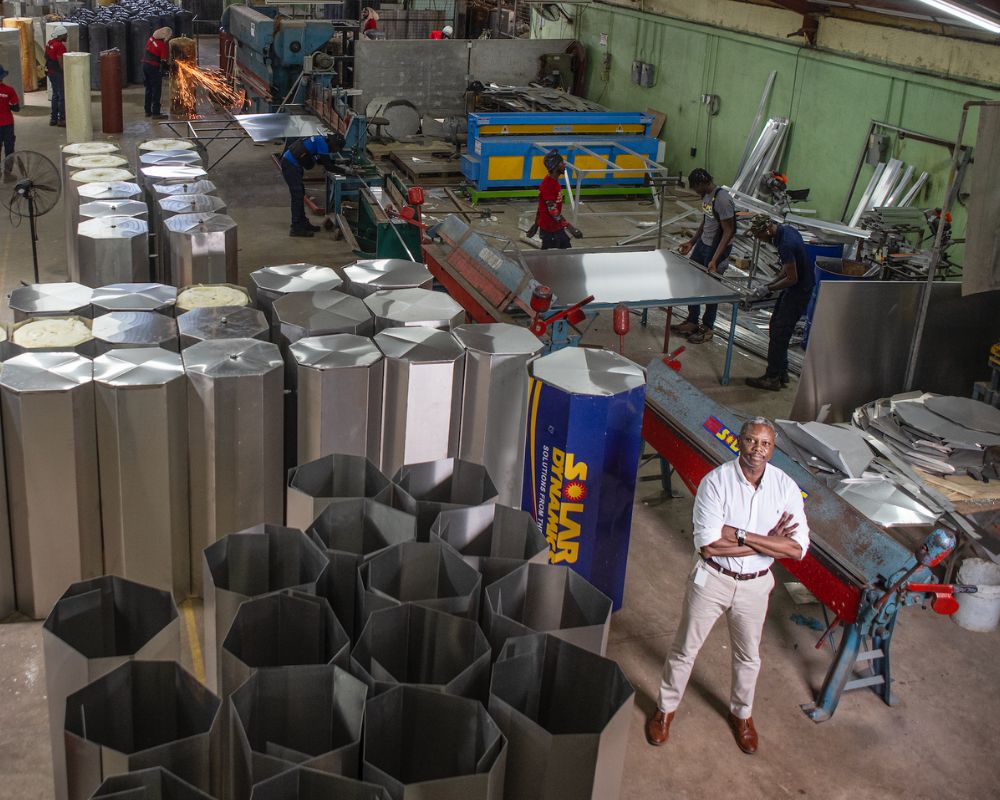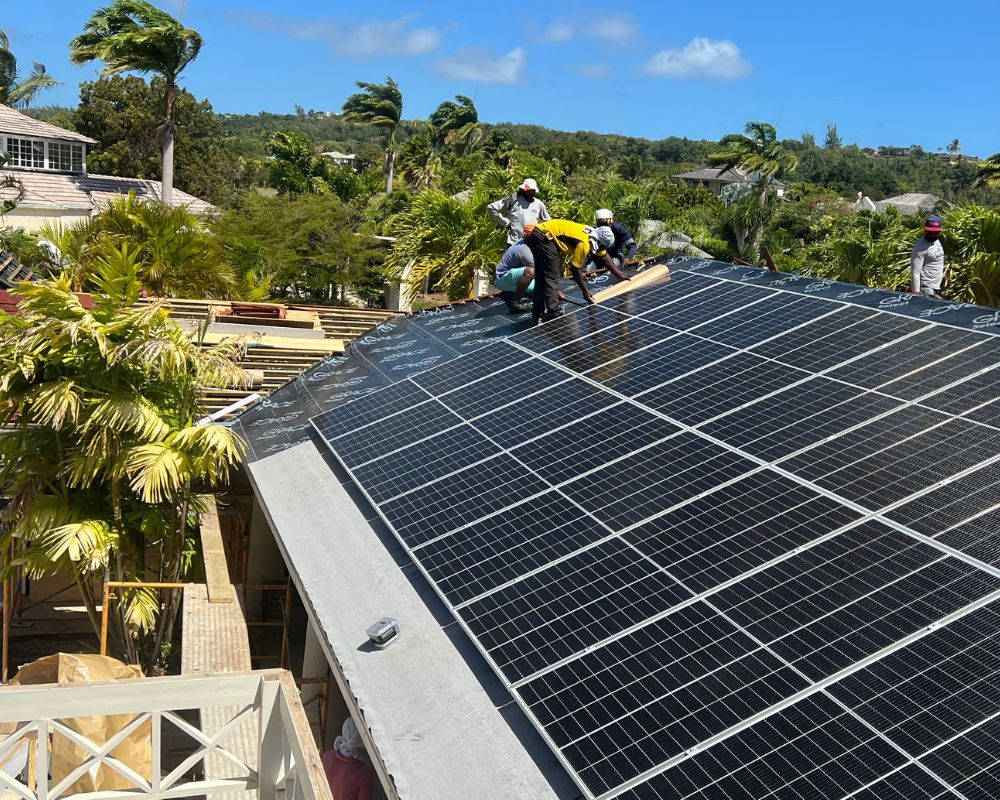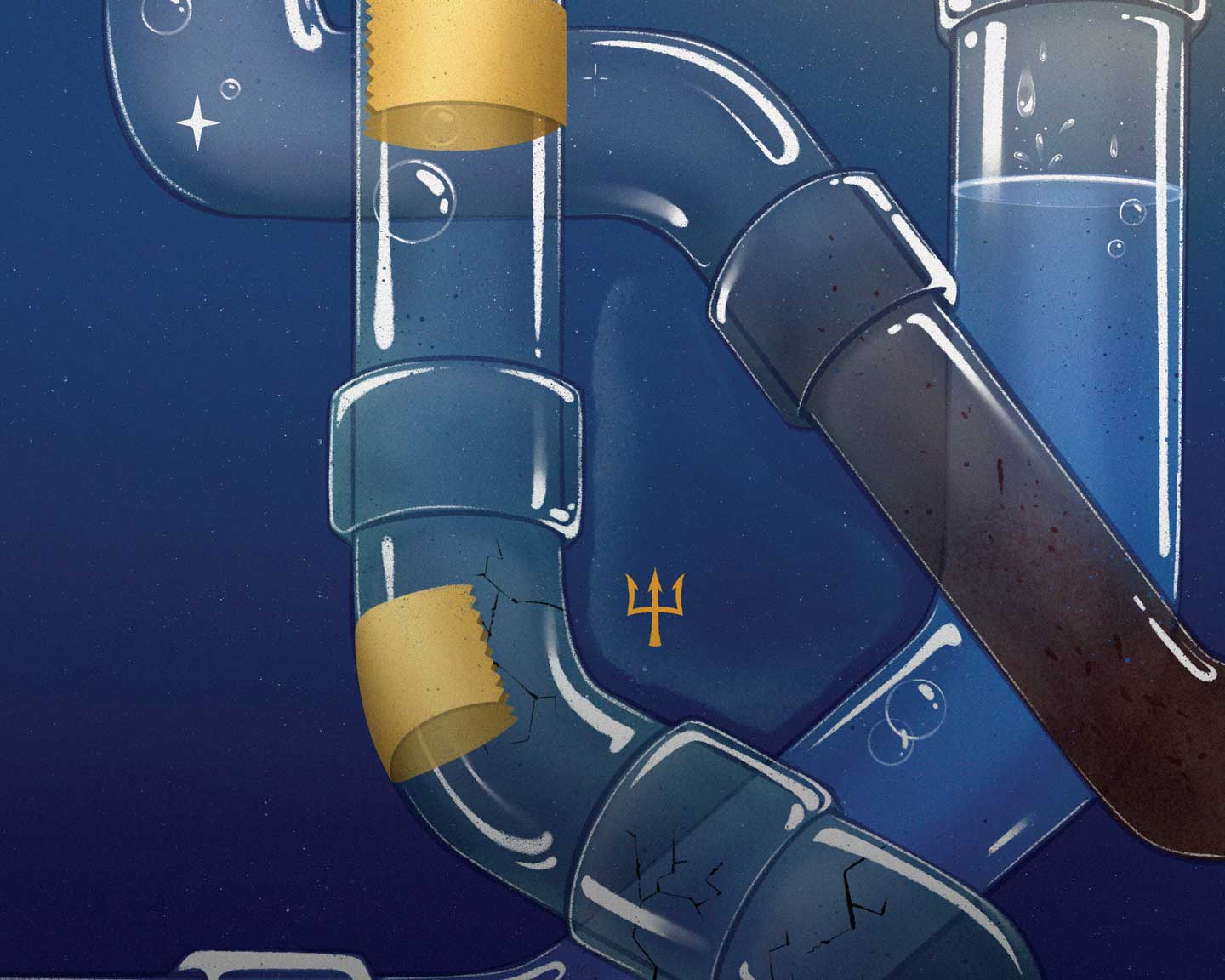-21.jpeg)
Barbados, renowned for its breathtaking landscapes and vibrant culture, has long been an oasis retreat for travelers from around the world. It’s a paradise to most minds, attracting upwards of a half a million tourists annually. However, beneath the surface, a less-known reality unfolds: the island has long grappled with severe water challenges that often impact the socio-economic stability. However, this challenge is not unique to Barbados and plagues most of the Caribbean islands today.
With a population of over 282,000 persons[1] Barbados ranks among the top 15 most water-scarce countries in the world1. Moreover, there has been an increase in water consumption both from the resident population and the growing tourism sector[2]. With tourism returning to pre-pandemic levels, contributing $508.2 million toward the island’s 10% economic growth in 2022[3], there is no indication that the sector’s water use trend will reverse. This implies an inevitable corresponding increase in wastewater flows with higher demand implications for sanitation services and infrastructure.
Current State and Existing Infrastructure
Most of the Caribbean islands rely on alternate, on-site wastewater treatment, such as septic tanks and package treatment plants for many hotels and resorts. This existing patchwork of urban systems and on-site treatment provide low levels of treatment, usually only primary treatment (such as screening), which is largely inadequate in managing conventional water pollutants such as nitrogen, pathogens, parasites, and toxic chemicals. The partially treated effluent is discharged offshore via pipeline or inadvertently into the marine environment through ground seepage. The net effects have been a contribution to the deterioration of the many Caribbean coral reefs, with sewage being one of the main factors that has caused approximately 80% of living coral in the Caribbean to be lost over the past twenty years[4].
In Barbados, two regional municipal sewage treatment plants currently service different areas on the island — the Bridgetown Sewage Treatment System (BTSTP) and the South Coast Sewage Treatment System (SCSTP) — with several hotels relying on their own package wastewater treatment systems.
With approximately 1,500 connections, the BTSTP services about 12% of the town of Bridgetown. The 30-year-old system treats sewage to a secondary level of treatment, includes a short sea outfall, and is designed for an average flow of 7,600 m3/day[5]. The SCSTP was completed in 2002 and accommodates approximately 3,000 connections with a capacity to treat 9,000 m3/day of wastewater5. While this facility adheres to international standards, it only provides preliminary treatment (using screens), to remove solids from the wastewater.
Barbados relies significantly on aquifers, underground reservoirs of groundwater, to supply approximately 90% of its drinking water. However, the challenges of climate change, eutrophication, and increasingly saturated soils hinder the natural water purification process and the levels of these aquifers. This exerts increased pressure on the water treatment process as it strives to remove the various contaminants present in the aquifer, while simultaneously putting a strain on the availability of this invaluable resource.
As a country challenged with water scarcity and increasing vulnerability to climate change, prioritizing the establishment of reclaimed water infrastructure has never been more crucial. Barbados finds itself at a pivotal moment, where the urgent need for comprehensive wastewater management intersects with the necessity of preserving its natural beauty, supporting its communities, and growing its economy.
Advancing Solutions Through Water Reuse
As Barbados confronts these critical water challenges, the concept of water reuse emerges as a promising solution. Thoughtful recycling of treated wastewater offers a multifaceted approach to address water scarcity and declining water quality. The private sector has been a first mover in this space with several hotels and housing developments, particularly along the west coast that use package sewage treatment plants.
These facilities utilize sophisticated treatment technology, including membrane bioreactors (MBR), to enhance the level of tertiary treatment by effectively eliminating bacteria and microorganisms, while reaping the benefits of water reuse. A number of resorts and developments, including the newly constructed Sam Lord’s Castle, a Wyndham Resort, use the treated effluent to irrigate resort grounds and provide water for toilet flushing, which is a promising step towards sustainable best practices. By harnessing the potential of reclaimed water for non-potable purposes, such as irrigation and industrial processes, these private entities have helped to alleviate the strain on potable water demands while preventing the declining health of the marine and biological environment.
The Government of Barbados has similar plans and recently, through the Barbados Water Authority (BWA), have successfully been granted funds by the Green Climate Fund to upgrade the BTSTP to tertiary levels (the highest level of wastewater treatment). The design upgrade also includes the implementation of reverse osmosis (RO) water treatment technology to achieve very high water quality standards. This ensures that the reclaimed water can be utilized for crop irrigation and to recharge the existing aquifers. It is envisioned that the successful upgrade of the BTSTP to a water reclamation plant is expected to set a precedent and establish a new benchmark not only in Barbados but also throughout the entire Caribbean region. As such, similar improvements are already predicted for the SCSTP.
Step by step, tangible measures are being implemented to transform reclaimed water utilization into a priority in Barbados, forging a path toward a more sustainable and climate resilient future.
Contact
For further details about the actionable steps being undertaken to promote the utilization of reclaimed water in Barbados, and water treatment innovation in the Caribbean, please get in touch with Nick St-Georges.
Nick St-Georges, BAPE, P.Eng.
VP, International | Integrated Sustainability
Mobile: 246.823.5300 | Office 246.622.2311
Nick.StGeorges@IntegratedSustainability.ca

[1] Barbados Population (2023) - Worldometer (worldometers.info)
[2]https://www.researchgate.net/publication/254339552_Confronting_the_Challenges_of_Sewerage_Management_in_the_Caribbean_A_Case_Study_from_the_Island_of_Barbados
[3] https://today.caricom.org/2022/10/31/barbados-grows-by-10-1-earns-508-2m-from-tourism-caricom-business/
[4] www.catlinseaviewsurvey.co
[5] Troy Vassos, 2021, Baseline Study - Consultancy to Produce Requisite Design, Studies and Plans – The 3R’s for Climate Resilience Wastewater Systems in Barbados (3R’s Crew Barbados) Preparation Project





%20(300%20%C3%97%20300%20px)-3.avif)









